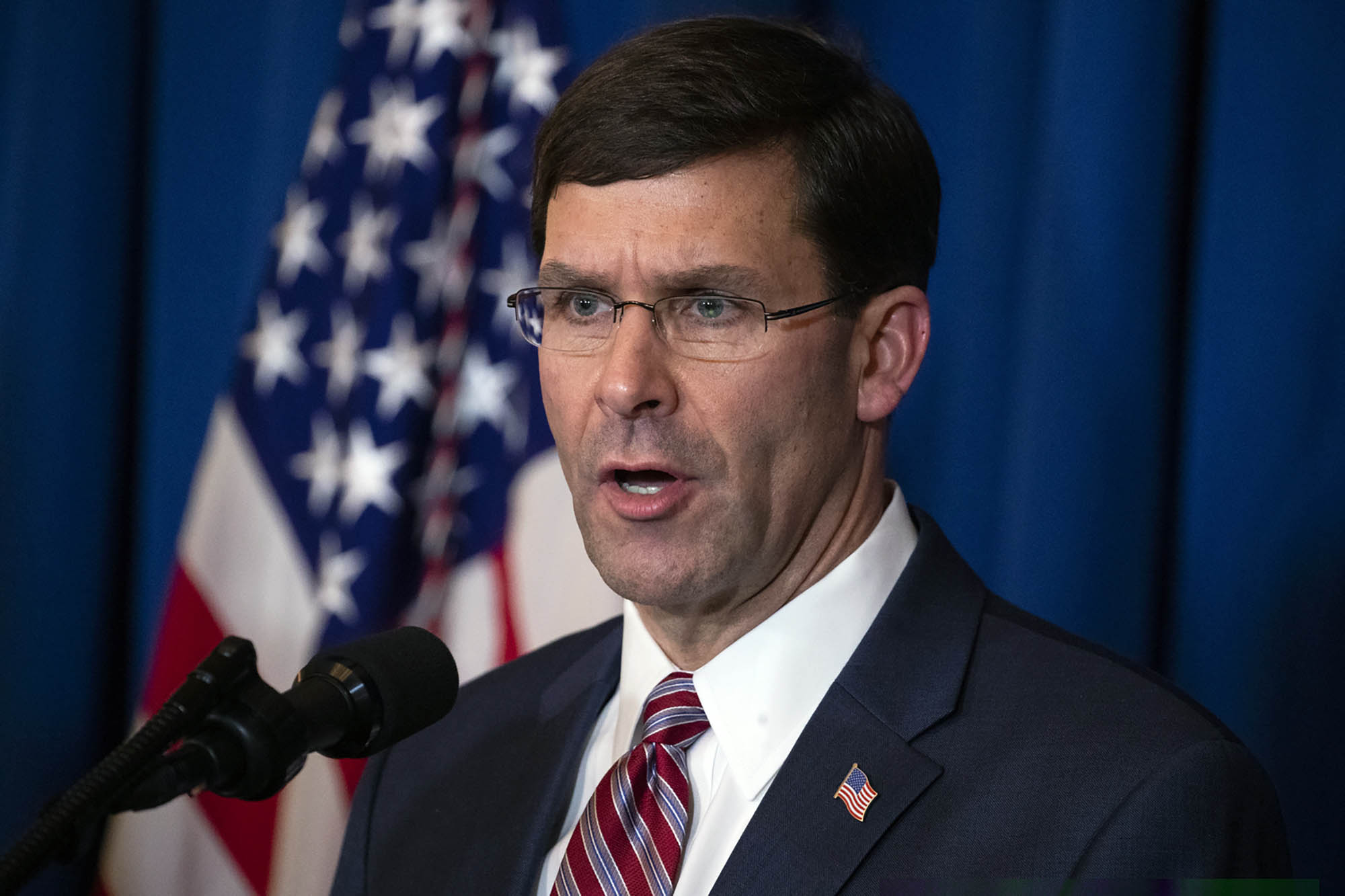
He joined the Pentagon in 2017 as deputy assistant secretary for industrial policy from McKinsey & Company, a management consulting firm where he specialized in the aerospace industry.
Then-acting Defense Secretary Pat Shanahan tapped Chewning as his chief of staff in January 2019 after the departure of Defense Secretary Jim Mattis. Chewning continued to serve in that role when then-Navy Secretary Richard Spencer stepped in temporarily as acting Pentagon chief while Esper, who was serving as Army secretary, awaited confirmation from the Senate. Chewning then stayed on when Esper took over in July.
„I’m grateful for Eric’s professionalism, judgment, and leadership over the last seven months as I moved into the Secretary of Defense role,“ Esper said in a statement Monday. „In an incredibly demanding job, Eric has been a source of calm and tireless work. We wish him all the best upon his return to the private sector.“
Farah confirmed that Chewning will take a new job in the private sector. But she did not offer additional details, including the reason for the departure or any specifics about Chewning’s professional plans.
Chewning was featured in a recently released trove of unredacted emails that show Pentagon officials’ concerns with the legality of White House moves this summer to hold up military assistance to Ukraine, an issue at the center of President Donald Trump’s impeachment.
In the emails reported by Just Security, Chewning in late August relayed to acting Pentagon comptroller Elaine McCusker questions from defense contractor L3Harris Technologies about the status of the Ukraine funding. McCusker criticized the Office of Management and Budget for saying the freeze wouldn’t prevent the aid from being fully spent.
Chewning later wrote that a memo to OMB, which warned that the Ukraine aid was in danger of not being fully spent by the end of the fiscal year, will have to wait until after a September meeting between Vice President Mike Pence and Ukrainian President Volodymyr Zelensky in Poland.
„We expect the issue to get resolved then,“ he wrote to McCusker. „If not, I think we need to send the letter.“
His departure comes after a string of senior officials left the Pentagon last month or announced they were stepping down, including the director of Defense Advanced Research Projects Agency, the acting undersecretary for personnel and readiness, the principal deputy undersecretary for intelligence, and the assistant secretary for Asian and Pacific security affairs.
Chewning’s replacement, Stewart, has identified a personal interest in cybersecurity issues and in making the Pentagon more efficient. The move marks a major personnel step for Esper as he comes up on his six-month mark in the top job.
Esper said Stewart’s expertise will be crucial as the Pentagon steps ups its preparations for the growing threats posed by great powers Russia and China.
“I have known Jen for years and I’m excited to bring her into the Department,” he said. “Her deep expertise on national security issues will be a great addition to our team as we continue implementing the National Defense Strategy.”
Stewart has strong ties on Capitol Hill and in the Pentagon.
She has led the Republican staff on the House Armed Services Committee under Rep. Mac Thornberry (R-Texas) since 2017, including when he served as chairman before the Democratic takeover of the House, playing a role in his efforts to boost defense spending.
She was the national security adviser to then-House Speakers Paul Ryan (R-Wis.) and John Boehner (R-Ohio).
She is also a familiar face inside the Pentagon, where she was a senior adviser to then-Joint Chiefs Chairman Gen. Joe Dunford.
If her own comments in recent years are any guide, she is likely to take a major interest in her new role in ensuring that the bureaucracy is more in sync in honing key capabilities, especially in cyberspace.
„My personal interest, which will not surprise you, [is] cybersecurity,“ she told POLITICO in an interview when she took over as HASC staff director.
She also said at the time that she is interested in „helping to lay the groundwork for a very professional, responsible conversation about how we talk about staying ahead of Russia and China.“
„We’re not calling them our enemies,“ she added, „but they’re emergent competitors who want to be peer competitors, and if we never want to get into a fair fight we have a lot of work in front of us.“
Esper, in his statement Monday, telegraphed more personnel announcements to come as he builds out his leadership team.
„The Department continues to bring in high quality personnel into leadership positions.“ he said. „This week three new Senate-confirmed appointees will be sworn in, while three nominees await Senate action, and additional nominations are expected in coming weeks. Also this week, four new senior [senior executive service] appointees will be sworn in, joining approximately a dozen senior SES leaders brought into the Department in the last few months of 2019.“
Daniel Lippman contributed to this report.
Source: politico.com
See more here: news365.stream






